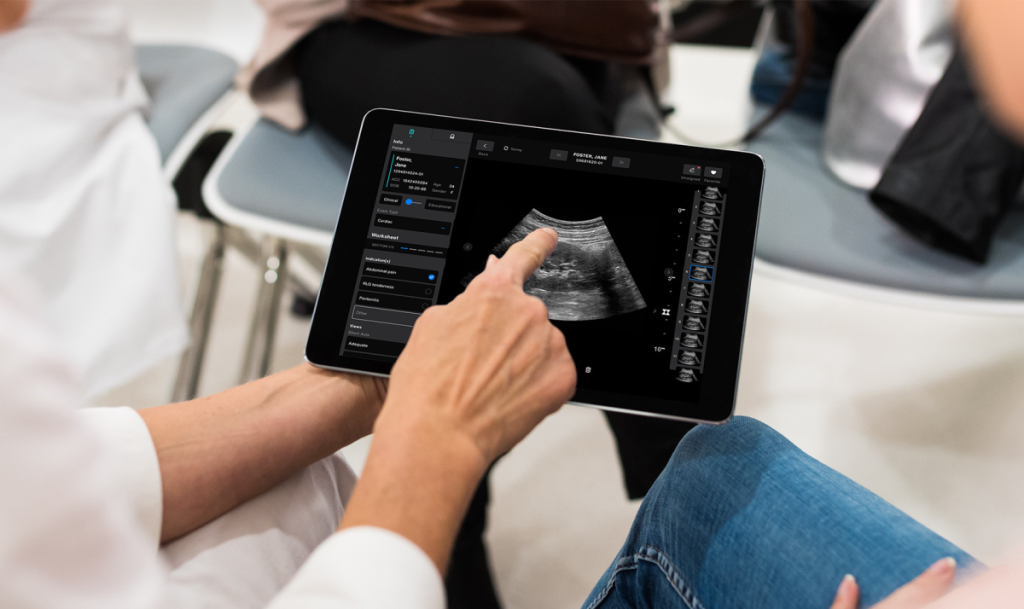In a significant move within the healthcare technology sector, Samsung’s venture investment unit is reportedly in discussions to inject up to $100 million into California-based medical device startup, Exo. This investment round is expected to be led by Sands Capital, Bold Capital, and Qubit Health Capital, with Bloomberg highlighting that Qubit’s chairman, Imar Ishrak, is poised to join Exo’s board of directors in light of this partnership [Bloomberg].
Exo’s Innovative Medical Imaging Technology
Founded in 2015, Exo has carved a niche in the medical technology landscape by developing handheld medical imaging devices that leverage a potent mix of artificial intelligence, sophisticated imaging techniques, and silicon technology. These devices are particularly focused on ultrasound examinations, including crucial assessments like lung scans and echocardiograms. The innovation allows medical examiners to connect the device to a smartphone, enabling them to scan patients, document findings, and share reports seamlessly through a single application.
Funding and Future Prospects
To date, Exo has successfully raised over $320 million from a diverse array of investors, including notable names such as RA Capital Management, BlackRock, Sands Capital, Intel, and Sony, alongside Avidity Partners. The company achieved its most recent funding milestone of $220 million in a Series C round back in 2021 [TechCrunch]. This significant backing has not only fueled the company’s growth but also highlighted the potential for handheld ultrasound technology to revolutionize patient care.
Furthermore, Exo is reportedly exploring a partnership with Samsung Medison Co., which specializes in medical devices for ultrasound diagnostics and digital X-ray systems. Such a collaboration could enhance Exo’s capabilities while providing Samsung with a strong foothold in the rapidly evolving medical imaging market. The synergy between Exo’s innovative handheld technology and Samsung Medison’s established expertise could pave the way for groundbreaking advancements in ultrasound diagnostics.
Potential Impact on the Healthcare Industry
The integration of AI and mobile technology in medical imaging, as exemplified by Exo’s devices, promises to make diagnostic processes more accessible and efficient. As healthcare systems worldwide strive to improve patient outcomes while managing costs, technologies that facilitate rapid, on-site diagnostics are becoming increasingly invaluable.
Industry experts suggest that the handheld device market for ultrasound is expected to grow significantly. According to a report by Statista, the global handheld ultrasound market is projected to expand at a compound annual growth rate (CAGR) of over 20% through 2028. This growth is driven by the increasing demand for portable medical imaging solutions that can be deployed in a variety of settings, from rural healthcare facilities to emergency response situations.
Market Reactions
The market’s reaction to Samsung’s potential investment in Exo has been overwhelmingly positive. Observers point to the strategic alignment between Samsung’s technological strengths and Exo’s innovative approach to medical imaging. The anticipated partnership could signal a transformative shift in how ultrasound services are delivered, particularly in underserved areas. Analysts believe that by investing in Exo, Samsung is positioning itself not only as a leader in consumer electronics but also as a significant contender in the healthcare technology arena.
Although Exo, Samsung, Sands Capital, Bold Capital, and Qubit Health did not immediately respond to inquiries regarding this investment, the implications of such a partnership are profound. The healthcare sector continues to embrace digital transformation, and Samsung’s involvement with Exo could further accelerate this trend, benefiting patients and healthcare providers alike.
Quick Reference Table
| Company | Founded | Total Funding | Recent Investment Round | Potential Investment |
|---|---|---|---|---|
| Exo | 2015 | $320 million | Series C – $220 million | $100 million (Samsung) |

